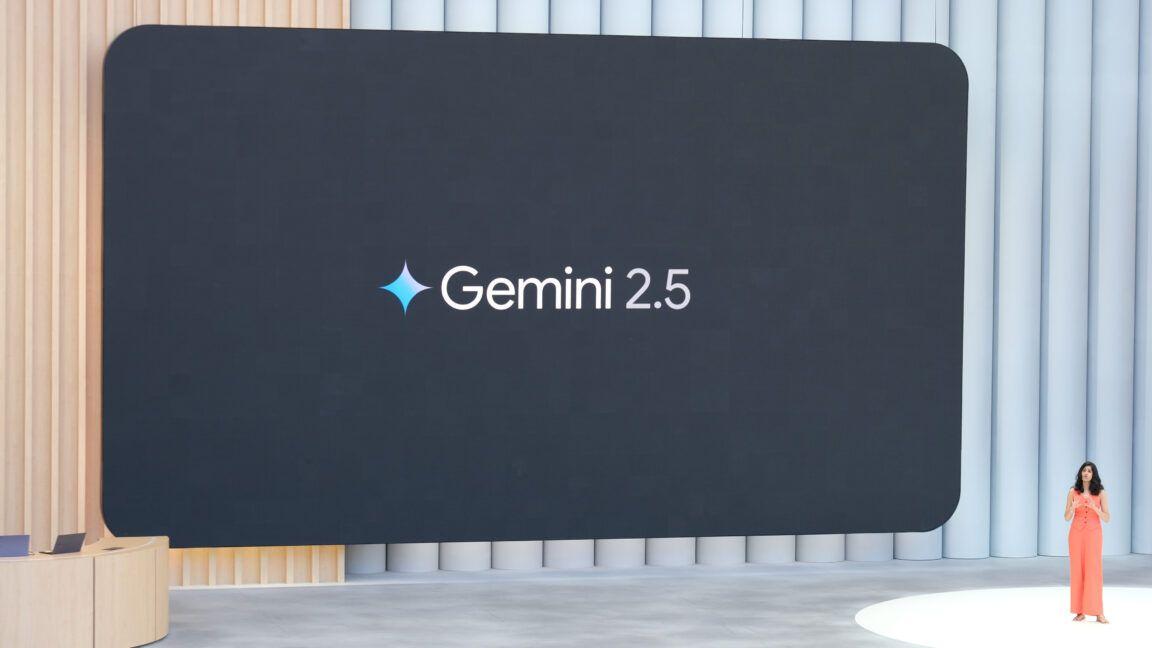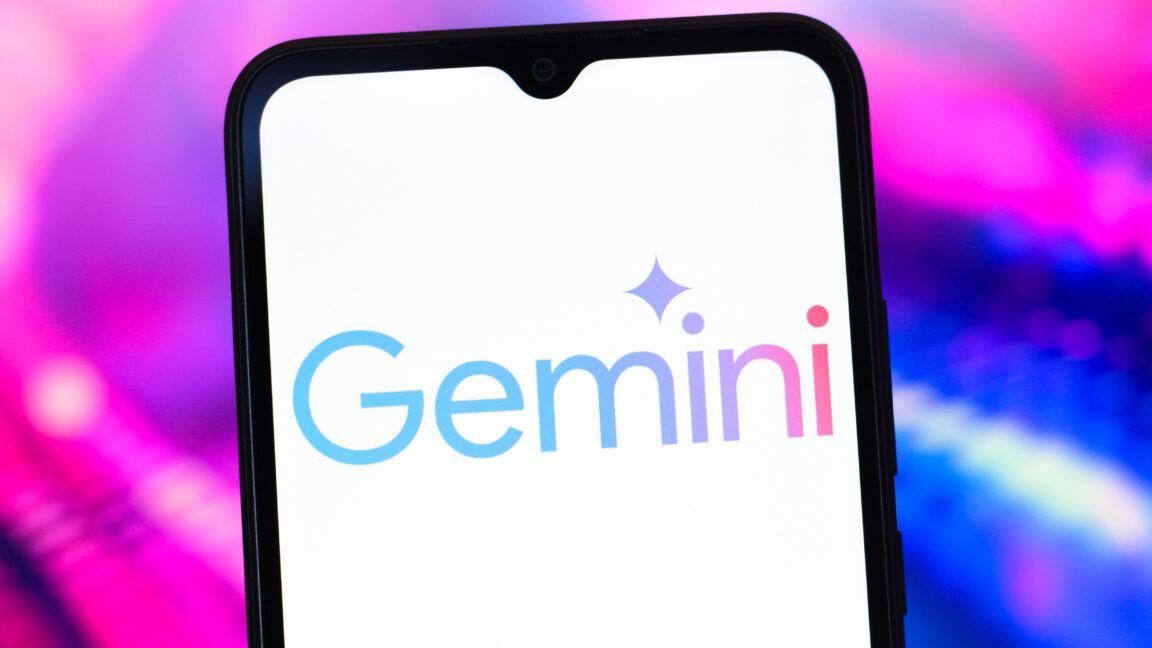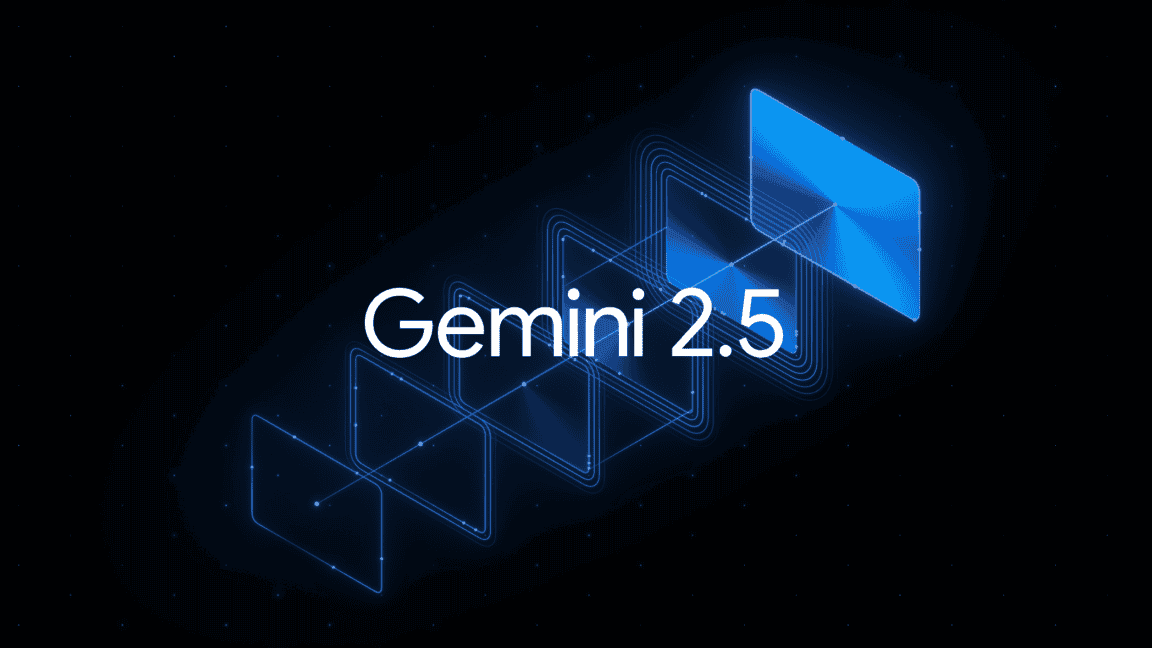Google Unveils New Gemini Models: A Leap Forward in AI Technology
2 Sources
2 Sources
[1]
Google announces stronger and enhanced Gemini models
Google has once again upped the ante for artificial intelligence with its recent announcement of improved versions of its Gemini AI models. As the tech giant accelerates toward the release of Gemini 2.0, the company is making waves with the introduction of the Gemini 1.5 Flash-8B, an enhanced variant of the existing Gemini 1.5 Flash, and a more robust version of the Gemini 1.5 Pro. These updates, according to Google, represent significant strides in performance, particularly in areas like coding, complex problem-solving, and the ability to handle extensive data inputs. The latest iterations of the Gemini models are not just incremental updates but reflect Google's strategy to lead the next wave of AI innovation. The Gemini 1.5 family, first introduced earlier this year, was designed with the capacity to manage long contexts and process multimodal inputs, such as documents, video, and audio, over large token sequences. This capability alone set a new standard for how AI can be applied in various domains, from research and development to practical applications in coding and content generation. With the introduction of the Gemini 1.5 Flash-8B, Google has provided a more compact yet powerful variant that retains the core strengths of its predecessor. This model is tailored for efficiency without sacrificing the ability to process and reason over fine-grained information. It's a move that aligns with the growing demand for AI models that can be deployed across a range of devices and platforms without the heavy computational costs traditionally associated with large language models (LLMs). Google's latest updates are particularly noteworthy for the performance enhancements in the Gemini 1.5 Flash and Pro models. The Gemini 1.5 Flash, which has been described by Google AI Studio's product lead Logan Kilpatrick as "the best in the world for developers," shows massive gains across internal benchmarks. This model has been optimized for developers who require fast, reliable processing power for complex tasks. Whether it's generating code, analyzing large datasets, or engaging in intricate problem-solving, Gemini 1.5 Flash is now better equipped to handle these challenges with improved speed and accuracy. On the other hand, the Gemini 1.5 Pro model, which has always been geared toward more specialized applications, has seen a marked improvement in its ability to tackle math-related tasks and complex prompts. This is a crucial development for industries that rely heavily on precise calculations and the generation of complex code structures. The enhanced Pro model is also touted as a "drop-in replacement" for the previous iteration released in August, making it easier for developers to transition to this new version without the need for significant adjustments to their workflows. The rapid rollout of these Gemini updates reflects Google's broader approach to AI innovation, which is characterized by frequent iterations and the incorporation of user feedback. According to Kilpatrick, these experimental models serve as a critical testing ground that allows Google to refine and perfect its offerings before releasing them on a wider scale. By making these models available for free testing through platforms like Google AI Studio and the Gemini API, Google ensures that developers have the opportunity to engage with the latest technology and provide feedback that can shape future versions. Imagen 3 is now available for free via Google AI Test Kitchen This strategy is particularly important as Google races toward the release of Gemini 2.0, which is expected to bring even more advanced features and capabilities to the table. The iterative process not only helps Google stay ahead of its competitors, but it also fosters a sense of community and collaboration within the developer ecosystem. This approach contrasts with the more traditional, slower-paced development cycles seen in other tech companies, where major updates are few and far between. As with any major release, the updated Gemini models have sparked a range of reactions from the AI community. On platforms like X (formerly Twitter), feedback has ranged from enthusiastic praise to pointed criticism. Some users have lauded the speed and efficiency of the new models, particularly in image analysis and processing tasks. Others have expressed frustration with the frequency of updates, arguing that they would prefer a more substantial leap forward with the release of Gemini 2.0 rather than a series of incremental improvements. Critics have also pointed out some lingering issues, such as the models' occasional tendency to repeat phrases or generate less coherent outputs when tasked with producing longer texts. These concerns echo similar critiques leveled at other LLMs, suggesting that while Google's Gemini models have made significant strides, there is still room for improvement, particularly in the realm of natural language processing and generation. Despite the mixed reviews, it's clear that Google is committed to pushing the boundaries of what's possible with AI. The rapid development and release of the Gemini 1.5 variants underscore the company's dedication to staying at the forefront of AI innovation. As we look ahead to the anticipated release of Gemini 2.0, there's no doubt that Google will continue to refine its models, taking into account the feedback from its community of developers and AI enthusiasts. In the meantime, the Gemini 1.5 Flash and Pro models represent significant advancements in the capabilities of large language models, offering developers powerful new tools to tackle increasingly complex tasks. Whether these models will fully meet the high expectations set by the community remains to be seen, but one thing is certain: Google is not slowing down in its quest to dominate the AI landscape. As the AI arms race continues, the introduction of stronger and more capable models like Gemini 1.5 Flash-8B and the enhanced Pro variant show that Google is not just keeping pace with its competitors -- it's setting the standard for what the future of AI will look like.
[2]
3 New Google Gemini AI models released
Google has unveiled three new experimental models in its Gemini series, harnessing innovative developments in Tensor Processing Unit (TPU) technology to drive significant improvements in speed and efficiency across a wide range of AI applications. The Gemini 1.5 Pro, Gemini 1.5 Flash, and Gemini 1.5 Flash 8B models are now available in Google AI Studio, each bringing distinct capabilities and enhancements over previous iterations. The rapid evolution of TPU technology is at the heart of the performance gains in the new Gemini lineup. TPU 6 delivers nearly a fivefold speed increase compared to TPU 5, which itself is approximately 2.7-2.8 times faster than TPU 4. Considering the original Gemini ultra model was trained on TPU 4s, these advancements underscore the substantial progress made in TPU capabilities, directly translating to the enhanced speed and efficiency of the new models. The Flash 8B model inherits the architecture and optimizations of larger Flash models, capable of handling a million tokens. Its design prioritizes high throughput and low latency, making it well-suited for applications such as large-scale data labeling and high-throughput agent serving. Moreover, it features multimodal capabilities, including image analysis, further expanding its potential use cases. Here are a selection of other articles from our extensive library of content you may find of interest on the subject of Google Gemini AI : In terms of performance, the Flash 8B model shines in high-throughput scenarios but may not always deliver faster results for short responses due to its experimental configuration. The Pro model, in contrast, offers superior reasoning capabilities and generates longer, more comprehensive responses. The Experimental Flash model generally outperforms the Flash 8B in short tasks and demonstrates improved adherence to system prompts. Performance benchmarks reveal the Flash 8B model matches the levels of Llama 3 70B, while the new Gemini Pro and Flash models rank second and sixth, respectively, on the Lmsys chatbot arena leaderboard. These rankings underscore the competitive edge of the new Gemini models in the rapidly evolving AI landscape. Testing insights shed light on the strengths and limitations of the models. In summarization tasks, the Flash 8B model faces challenges in maintaining full context for long texts, whereas the Experimental Flash and Pro models handle multiple topics more effectively. For image analysis, the Flash 8B provides accurate descriptions, although they may be less detailed compared to the Pro model's output. Looking ahead, the Gemini team remains dedicated to continuous iteration and refinement of their models. The potential for open-sourcing these models in the future holds promise for spurring further innovation. Additionally, the team emphasizes the crucial role of identifying the best datasets and curation strategies to optimize the performance of upcoming models. The launch of the new Gemini models marks a significant milestone in AI capabilities, particularly in terms of speed and efficiency. While the Flash 8B model shows great potential, further optimization is necessary to fully harness its capabilities. The experimental Flash and Pro models deliver robust performance, positioning them as valuable tools for a wide range of AI applications. As Google continues to push the boundaries of AI technology, the Gemini series is poised to make a lasting impact on the field.
Share
Share
Copy Link
Google has announced the release of new Gemini models, showcasing advancements in AI technology. These models promise improved performance and capabilities across various applications.

Google's Latest AI Breakthrough: Introducing New Gemini Models
Google has once again pushed the boundaries of artificial intelligence with the announcement of its latest Gemini models. These advanced AI systems represent a significant leap forward in the field, promising enhanced capabilities and performance across a wide range of applications
1
.Key Features and Improvements
The new Gemini models boast several notable improvements over their predecessors. Among the most significant enhancements are:
- Increased efficiency in processing complex tasks
- Enhanced natural language understanding and generation
- Improved multimodal capabilities, integrating text, image, and audio inputs
- Greater adaptability to diverse domains and use cases
These advancements are expected to have far-reaching implications for various industries, from healthcare to finance and beyond
2
.Applications and Potential Impact
Google's latest AI models are designed to tackle a wide array of challenges. Some of the key areas where the new Gemini models are expected to make a significant impact include:
- Scientific research and discovery
- Content creation and curation
- Customer service and support
- Data analysis and decision-making processes
The versatility of these models opens up new possibilities for innovation across multiple sectors
1
.Ethical Considerations and Responsible AI
As with any major advancement in AI technology, the release of new Gemini models has sparked discussions about ethical implications and responsible use. Google has emphasized its commitment to developing AI systems that adhere to strict ethical guidelines, ensuring privacy protection and fairness in their applications
2
.Related Stories
Industry Response and Future Outlook
The announcement of the new Gemini models has generated significant buzz within the tech industry. Experts predict that these advancements will likely spur further innovation and competition in the AI space. As companies and researchers begin to explore the full potential of these new models, we can expect to see a wave of novel applications and use cases emerging in the coming months
1
.Accessibility and Deployment
Google has stated that the new Gemini models will be made available through its cloud services, allowing developers and businesses to leverage these powerful AI capabilities in their own applications and workflows. This accessibility is expected to democratize advanced AI technologies, potentially leading to breakthroughs in various fields
2
.As the AI landscape continues to evolve rapidly, the introduction of Google's new Gemini models marks a significant milestone in the ongoing development of intelligent systems. The full impact of these advancements remains to be seen, but early indications suggest that they will play a crucial role in shaping the future of AI technology and its applications across industries.
References
Summarized by
Navi
[1]
[2]
Related Stories
Google Launches Production-Ready Gemini 2.5 AI Models, Challenging OpenAI's Enterprise Dominance
18 Jun 2025•Technology

Google Unveils Gemini 2.5 Flash: A Faster, More Efficient AI Model
08 Apr 2025•Technology

Google's Gemini 2.0: Leaked Details Hint at Imminent Release and Potential to Outperform OpenAI's o1
09 Nov 2024•Technology

Recent Highlights
1
SpaceX acquires xAI as Elon Musk bets big on 1 million satellite constellation for orbital AI
Technology

2
French Police Raid X Office as Grok Investigation Expands to Include Holocaust Denial Claims
Policy and Regulation

3
UNICEF Demands Global Crackdown on AI-Generated Child Abuse as 1.2 Million Kids Victimized
Policy and Regulation





